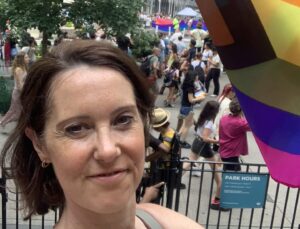‘(I am large, I contain multitudes.)’ – Walt Whitman, Song of Myself
No matter how senior we get in our medical career or public health career, making difficult decisions about our professional lives can be a challenge. Poet Walt Whitman was correct in understanding that the human mind contains multitudes – indeed it is comprised of a multitude of modules!
I’ve wanted to write about the modular theory of mind for a few years, it’s been on my own mental to-do list all this time – waiting for my own modules to align so that the idea is present in my consciousness in the right place and at the right time!
How many ‘sub-persons’ to change a lightbulb?
I loved studying both evolutionary and cognitive psychology in my intercalated psychology degree in the early 1990s, it underpins so much of my coaching psychology practice today. Minsky’s work on artificial intelligence (‘Society of Mind’, 1976) continues to have relevance: to paraphrase, ‘solving the simplest problem involves a dozen or more sub-persons playing different roles in our minds’.
‘Minds are what brains do’
As far as we know, there appears to be no one single ‘self’ at the centre of our consciousness. ‘Minds are what brains do’: different parts of our brains serve different purposes, and they don’t always pull together in the same direction because they have evolved to serve different functions. It’s like we’ve built a basic house and then added on lots of extensions – but without ever updating the electrics. It works well most of the time – but we have a very complex consumer unit under the stairs, and some quirks such as the bathroom light will only turn on if the kettle is also on, and so long as the TV is off…
Different modules (neural networks), talk to each other, and can hold independent opposing views at the same time. Most of our modules operate unconsciously most of the time, processing sensory information (our brains exist in what is essentially a soundproofed lightless box, relying on our senses for information about the outside world), and telling our bodies what to do in terms of behaviours including how and what we communicate.
Why this is relevant to our career decisions?
Understanding the modular theory of mind helps us to make sense of why we have so many dilemmas relating to our lives and careers. An independent coach for doctors can help you with questions such as:
- ‘Should I be home with the family or finishing an important commitment at work?’
- ‘Which direction should I choose in my career direction?’
- Why does part of me want ‘x’ and another part want ‘y’?’
How coaching psychology can help
There are specific psychology-based strategies and techniques which help us to both differentiate and link our minds in our career decision making, leading to integration and peace of mind. My medical leadership course, Doctors leadership coaching with a professional coach for doctors or a public health careers coach can help you to make the best decisions for yourself using the latest evidence-based coaching psychology, enabling you to move forwards with confidence, whilst also managing any unhelpful ‘apps in the smartphone of your mind’ or ‘voices of dissent around your personal Board table’ in helpful ways.
Dr Fiona Day is the world’s only Leadership Coach with advanced coaching psychology, medical and public health qualifications (MBChB, FFPH, BPS Chartered Psychologist in Coaching Psychology, EMCC Master Practitioner Coach & Mentor) and is in a unique position to help you and your teams to flourish. Fiona specialises in coaching medical and public health leaders, is a coach Supervisor, and an EQA Foundation Award Holder. Get 3 hours of FREE CPD with Fiona’s Health Career Success Programme here. Book a free confidential 30 minute Consultation with Fiona here.









